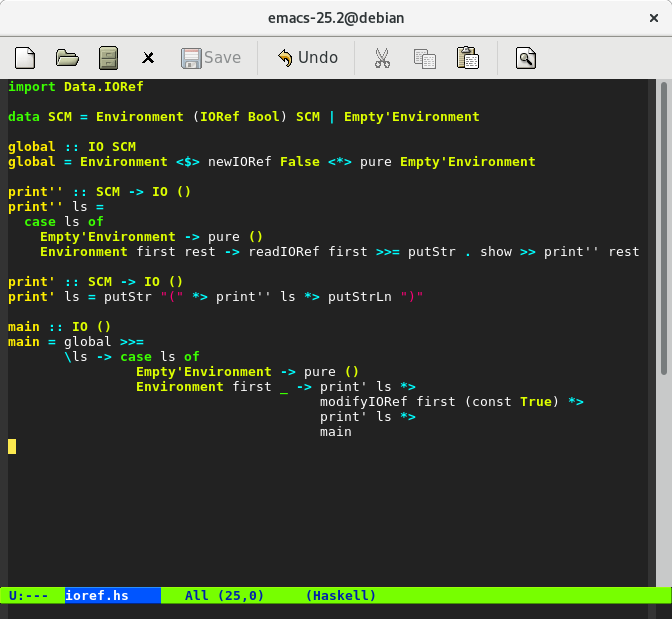Background
I am a Schemer starting to learn Haskell. I am trying to implement a Scheme interpreter in C, following chapter 4 of SICP. It turns out programming directly in C is too hard. So I decide to first prototype in Haskell. With the help of Write Yourself a Scheme in 48 Hours, I have implemented everything except variables, closures and environment.
Problem
The modification to IORef doesn't persist between invocations of main. I expect the program to print (False) (True) (True) (True)... but in fact it prints (False) (True) (False) (True) (False) (True)...
Strip-down version of the code:
import Data.IORef
data SCM = Environment (IORef Bool) SCM | Empty'Environment
global :: IO SCM
global = Environment <$> newIORef False <*> pure Empty'Environment
print'' :: SCM -> IO ()
print'' ls =
case ls of
Empty'Environment -> pure ()
Environment first rest -> readIORef first >>= putStr . show >> print'' rest
print' :: SCM -> IO ()
print' ls = putStr "(" *> print'' ls *> putStrLn ")"
main :: IO ()
main = global >>=
\ls -> case ls of
Empty'Environment -> pure ()
Environment first _ -> print' ls *>
modifyIORef first (const True) *>
print' ls *>
main
Thanks for your help!


globalcreate newSCMwith newIORef. You should reorganize your loop, whereglobalwill be performed once. – Bifilar